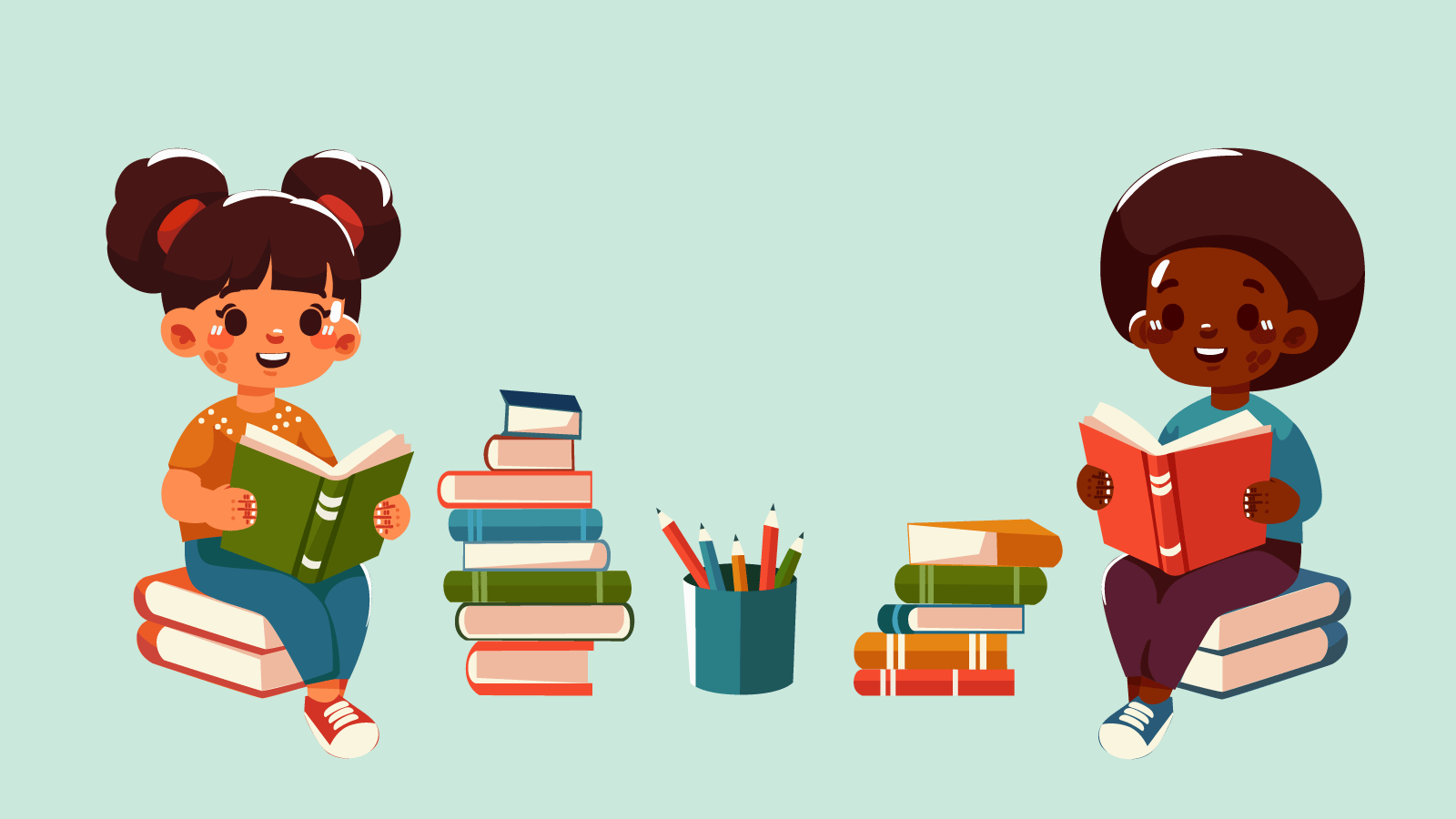Easy Reading worksheets activities for Ages 6-8
5 filtered results
-
From - To
Welcome to our Easy Reading Worksheets for Ages 6-8! Designed to engage young learners, these worksheets offer a fun and interactive way to develop reading skills. Each activity promotes literacy through age-appropriate stories, comprehension questions, and vocabulary exercises tailored to reinforce learning. From colorfully illustrated narratives to straightforward exercises, our resources support reading fluency and comprehension while fostering a love for books. Teachers and parents can easily integrate these worksheets into daily learning routines to reinforce dedication and interest in literacy. Explore our collection today to help your child confidently embark on their reading journey!
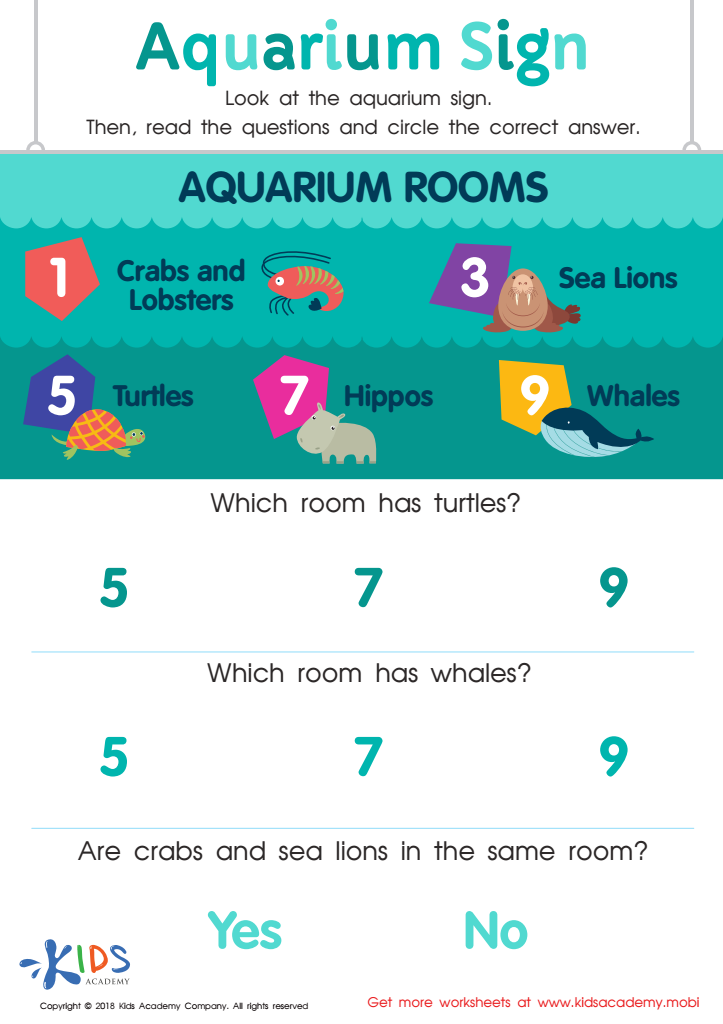

Assessment: Aquarium Sign Worksheet
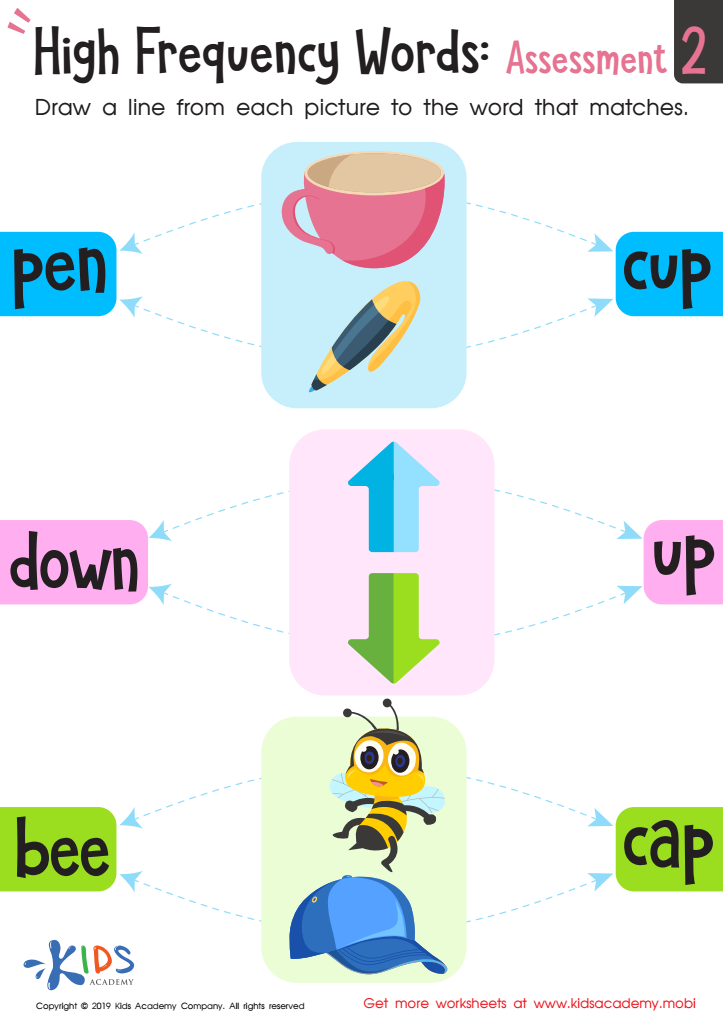

High Frequency Words: Assessment 2 Worksheet
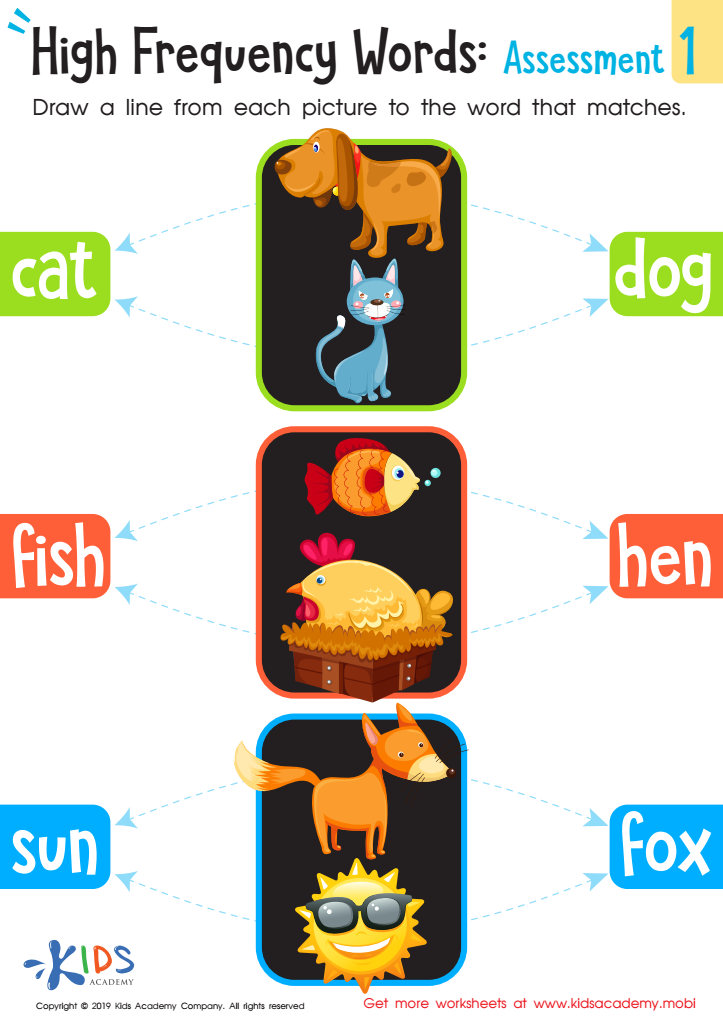

High Frequency Words: Assessment 1 Worksheet
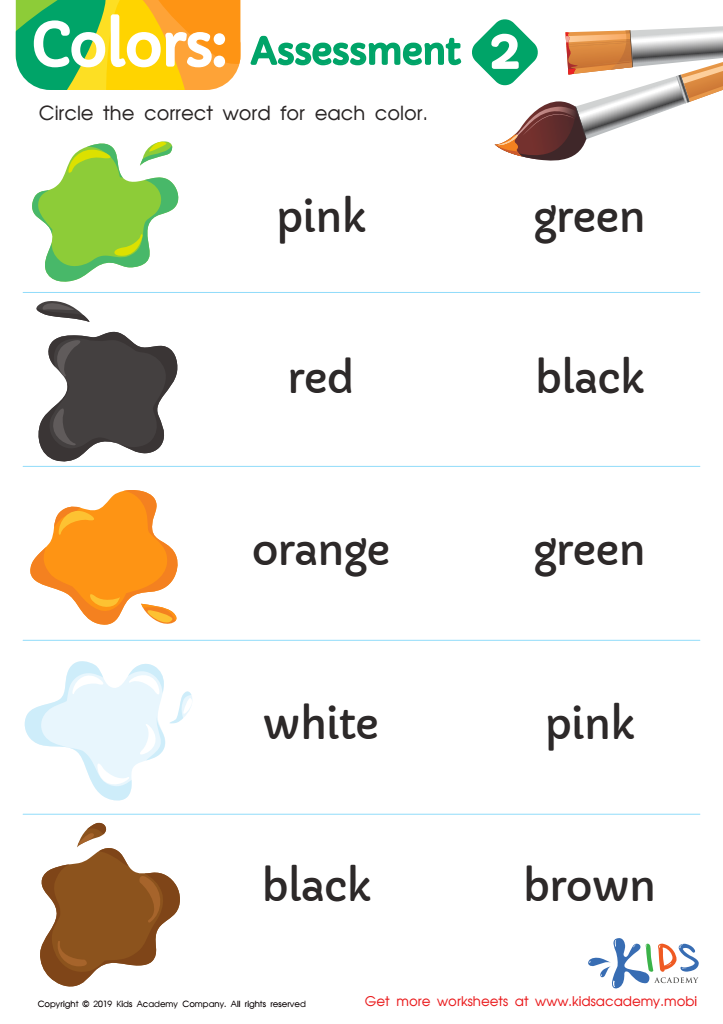

Colors: Assessment 2 Worksheet
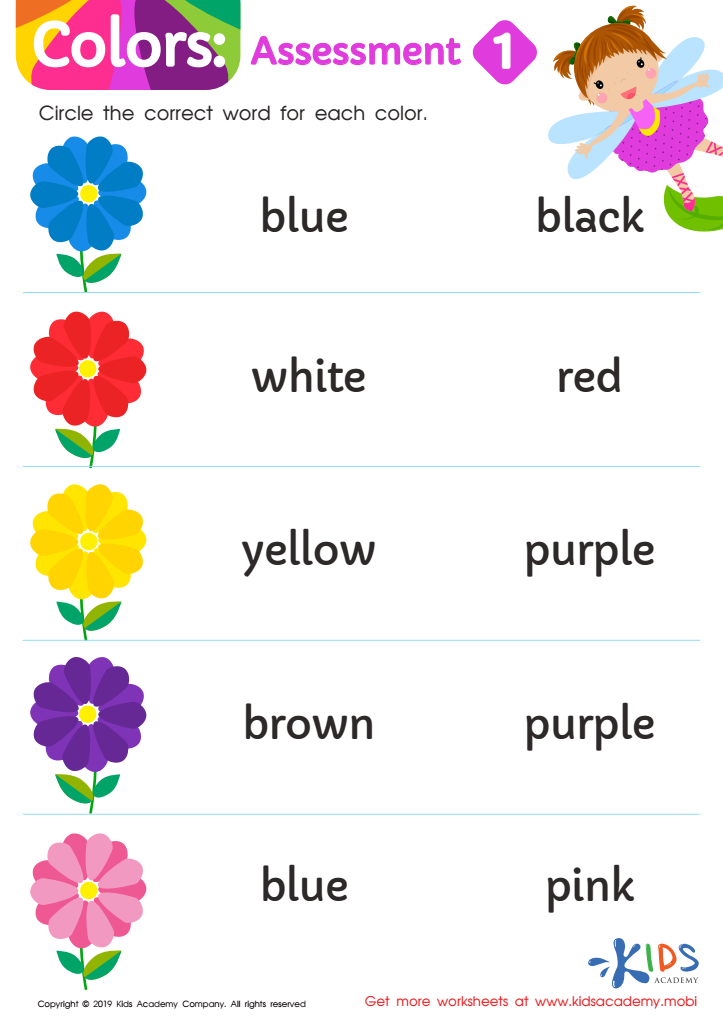

Colors: Assessment 1 Worksheet
Parents and teachers should care about Easy Reading activities for ages 6-8 because these activities lay the foundation for a child's literacy development. At this critical developmental stage, children are transitioning from learning to read to reading to learn. Engaging them in easy reading activities fosters confidence in their reading skills, enhances vocabulary, and builds comprehension, essential for academic success.
These activities can also instill a love for reading, making it a fun and enjoyable pursuit rather than a chore. Incorporating games, storytelling, and interactive reading can make learning engaging and stimulate a child’s imagination. Moreover, consistent reading practice helps improve fluency, enabling children to decode words more easily and understand sentences in greater depth.
Additionally, early literacy skills are closely linked to overall cognitive development, promoting skills such as critical thinking and problem-solving. By prioritizing easy reading activities, parents and teachers can support emotional and social development, encouraging discussions about stories and characters that foster empathy and connection.
Ultimately, nurturing children's reading skills provides them with essential tools to navigate their educational journey and thrive in various aspects of their lives. Promoting easy reading at this age is an investment in their future success.

 Assign to My Students
Assign to My Students





